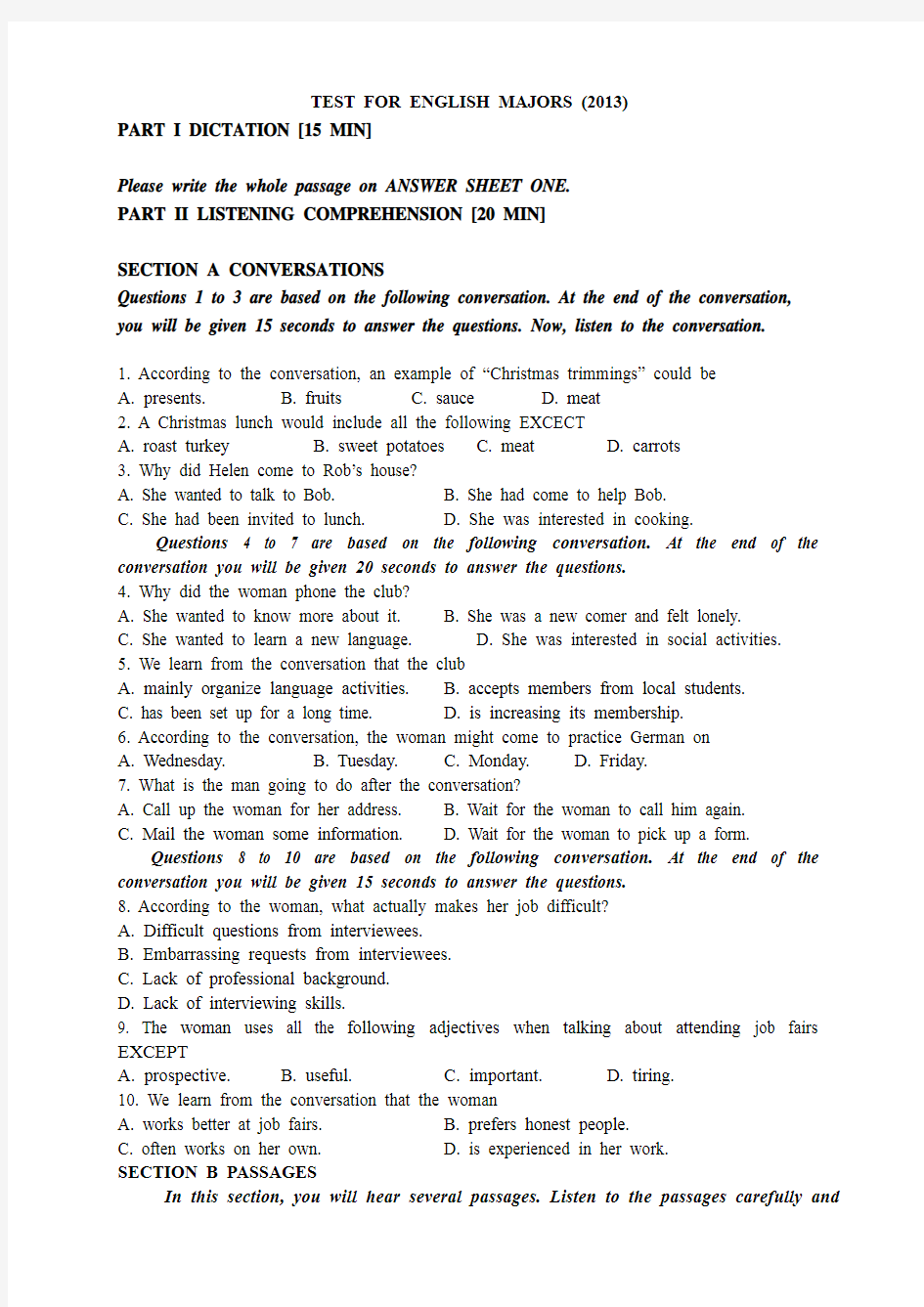
2013年英语专四真题及答案解析
- 格式:docx
- 大小:49.59 KB
- 文档页数:16


TEST FOR ENGLISH MAJORS (2013)
PART I DICTATION [15 MIN]
Please write the whole passage on ANSWER SHEET ONE.
PART II LISTENING COMPREHENSION [20 MIN]
SECTION A CONVERSATIONS
Questions 1 to 3 are based on the following conversation. At the end of the conversation, you will be given 15 seconds to answer the questions. Now, listen to the conversation.
1. According to the conversation, an example of “Christmas trimmings” could be
A. presents.
B. fruits
C. sauce
D. meat
2. A Christmas lunch would include all the following EXCECT
A. roast turkey
B. sweet potatoes
C. meat
D. carrots
3. Why did Helen come to Rob’s house?
A. She wanted to talk to Bob.
B. She had come to help Bob.
C. She had been invited to lunch.
D. She was interested in cooking.
Questions 4 to 7 are based on the following conversation. At the end of the conversation you will be given 20 seconds to answer the questions.
4. Why did the woman phone the club?
A. She wanted to know more about it.
B. She was a new comer and felt lonely.
C. She wanted to learn a new language.
D. She was interested in social activities.
5. We learn from the conversation that the club
A. mainly organize language activities.
B. accepts members from local students.
C. has been set up for a long time.
D. is increasing its membership.
6. According to the conversation, the woman might come to practice German on
A. Wednesday.
B. Tuesday.
C. Monday.
D. Friday.
7. What is the man going to do after the conversation?
A. Call up the woman for her address.
B. Wait for the woman to call him again.
C. Mail the woman some information.
D. Wait for the woman to pick up a form.
Questions 8 to 10 are based on the following conversation. At the end of the conversation you will be given 15 seconds to answer the questions.
8. According to the woman, what actually makes her job difficult?
A. Difficult questions from interviewees.
B. Embarrassing requests from interviewees.
C. Lack of professional background.
D. Lack of interviewing skills.
9. The woman uses all the following adjectives when talking about attending job fairs EXCEPT
A. prospective.
B. useful.
C. important.
D. tiring.
10. We learn from the conversation that the woman
A. works better at job fairs.
B. prefers honest people.
C. often works on her own.
D. is experienced in her work.
SECTION B PASSAGES
In this section, you will hear several passages. Listen to the passages carefully and